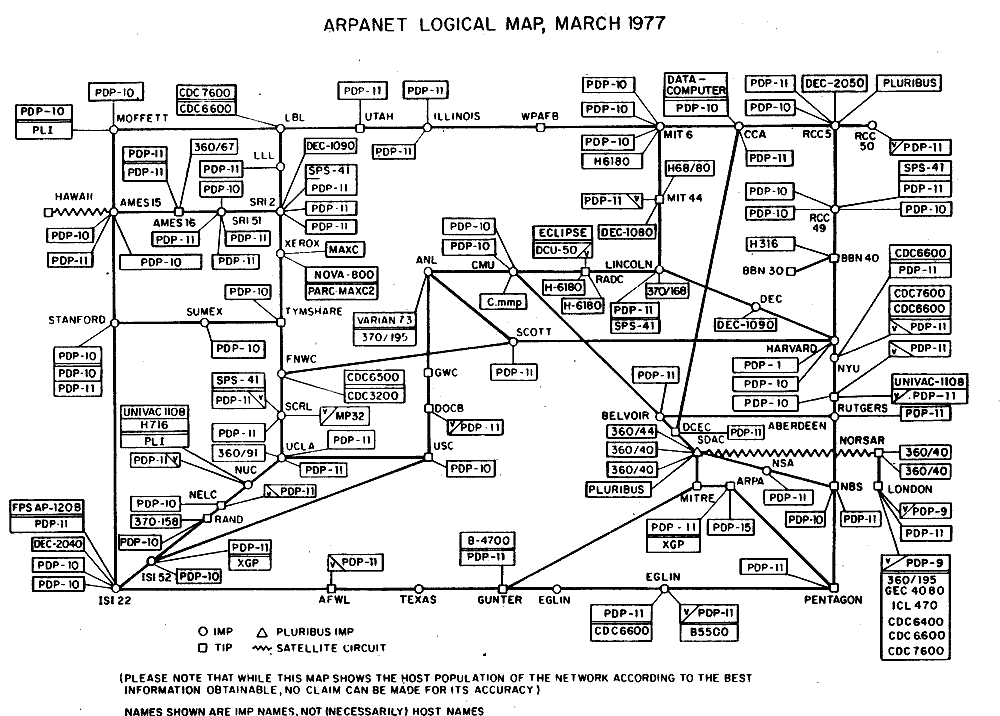Evidence that ARPANET was Designed to Survive a Nuclear War
There's an ongoing debate in regards to ARPANET's nuclear war survivability. The majority opinion is that ARPANET was designed with no thought given to nuclear war. The dissenting opinion argues that the ARPANET was conceived and designed to ensure command and control communications continuity in the event of nuclear war. A good wrapup of the debate appears at the bottom half of CYBERTELECOM's webpage on Paul Baran. Unfortunately, CYBERTELECOM's webpage only links to one of the three supporting documents shown on this page, which serves as an ad-hoc repository for evidence that supports the minority opinion.
RAND's On Distributed Communications Series preface, dated 1964, shows clear intention to build a wide area data network that can survive a nuclear war:
An electrical engineer by training, Paul Baran worked for Hughes Aircraft Company's systems group before joining RAND in 1959. While working at RAND on a scheme for U.S. telecommunications infrastructure to survive a "first strike," Baran conceived of the Internet and digital packet switching, the Internet's underlying data communications technology. His concepts are still employed today; just the terms are different. His seminal work first appeared in a series of RAND studies published between 1960 and 1962 and then finally in the tome "On Distributed Communications," published in 1964.
NSFNET's Final Report, dated a couple of decades later, clearly indicates that ARPANET was designed to withstand nuclear attack.
These WANs were primarily Federal research projects, the first of which was the ARPANET in 1969. An outgrowth of the Department of Defense's Advanced Research Projects Agency, the ARPANET's packet-switching scheme was meant to provide reliable communications in the face of nuclear attack.
Eugene Miya (a student at one of the early ARPA sites) mentions nuclear war suvivability in an October 16, 1990 usenet post to comp.misc and alt.folklore.computers entitled "Re: Internet: The Origins."
“Why? Lots of reasons: intellectual curiosity, the need to have different machines communicate, study fault tolerance of communications systems in the event of nuclear war, share and connect expensive resources, very soft ideas to very hard ideas....”
Links
- The Amateur Computerist - Honoring the 25th Anniversary of ARPANET
- ARPANET on the ICANNWiki
- Computer History Museum - Interview of Paul Baran
- CYBERTELECOM Paul Baran RAND (1960s)
- Netizens Netbook Chapter 7 - Behind the Net: Computer Science and the Untold Story of the ARPANET
- Netizens Netbook Chapter 8 - The Birth and Development of the ARPANET
- NSFNET Final Report
- On Distributed Communications Series
- Oral history interview with Paul Baran
- "The World Wide Web, a Paradigm of Innovation" by Peter J Denning
© 2018 Don Kuenz

